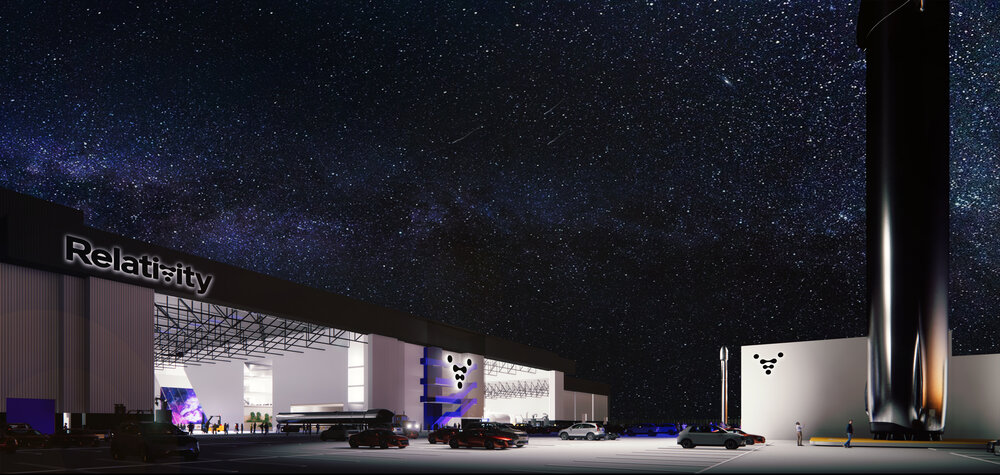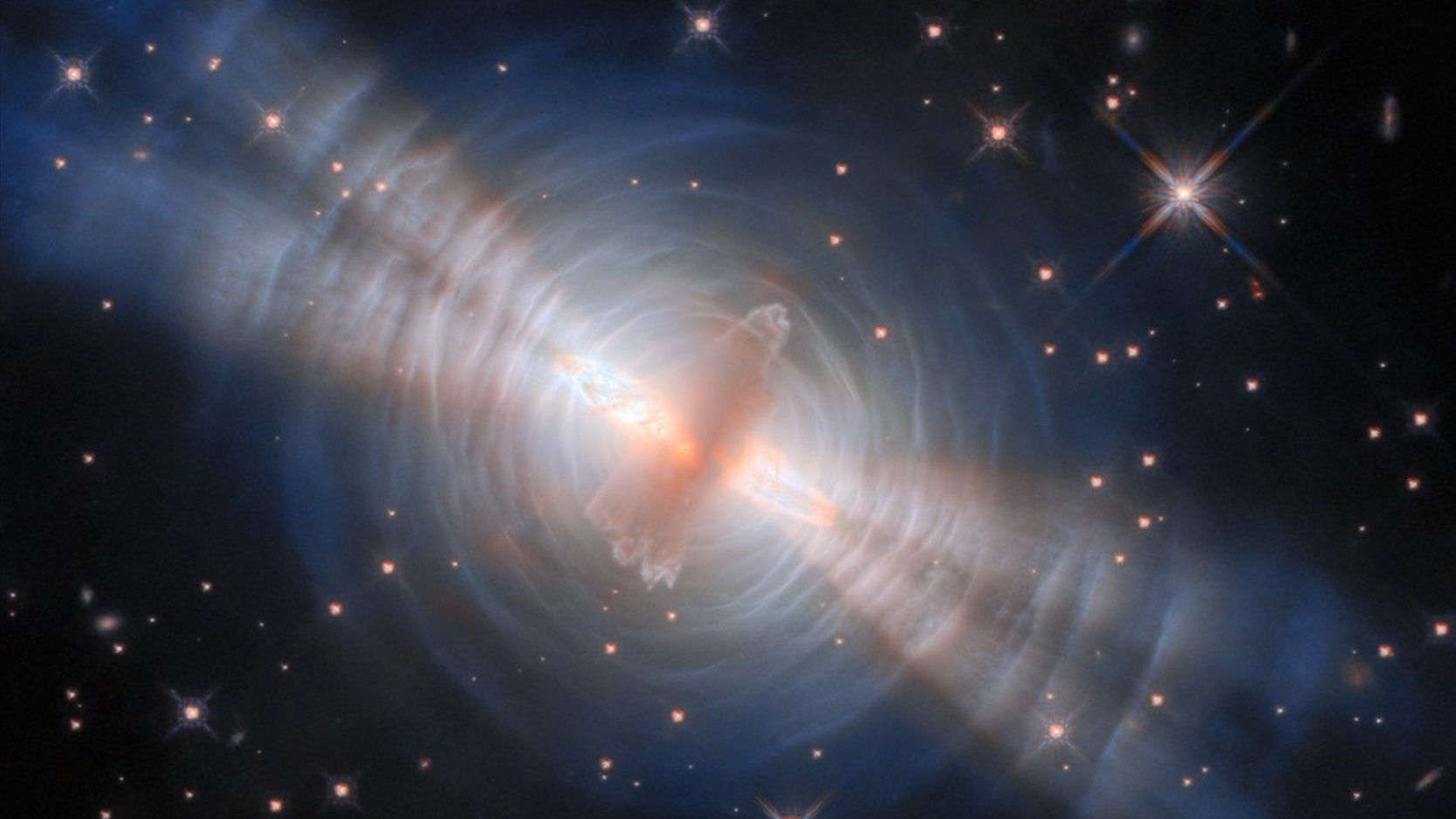New Relativity Space factory will host dozens of 3D printers for Terran rockets

Breaking space news, the latest updates on rocket launches, skywatching events and more!
You are now subscribed
Your newsletter sign-up was successful
Want to add more newsletters?

Delivered daily
Daily Newsletter
Breaking space news, the latest updates on rocket launches, skywatching events and more!

Once a month
Watch This Space
Sign up to our monthly entertainment newsletter to keep up with all our coverage of the latest sci-fi and space movies, tv shows, games and books.

Once a week
Night Sky This Week
Discover this week's must-see night sky events, moon phases, and stunning astrophotos. Sign up for our skywatching newsletter and explore the universe with us!

Twice a month
Strange New Words
Space.com's Sci-Fi Reader's Club. Read a sci-fi short story every month and join a virtual community of fellow science fiction fans!
3D rocket-printing startup Relativity Space said it plans a "major expansion" of operations and manufacturing to boost production of its Terran rocket line.
The firm — fresh off a $650 million Series A fundraising round announced earlier this month — said Wednesday (June 30) it has signed for a 1-million-square-foot (93,000 square meters) headquarters factory at the Goodman Commerce Center, in its current hometown of Long Beach, California.
The 93-acre plant used to host Boeing's C-17 military transport aircraft manufacturing, with the last C-17 produced there in 2015. Now, Relativity's factory will make it the anchor tenant for a planned 437-acre business district west of the Long Beach Airport, the company said. It also plans to hold on to its existing factory space to continue producing its Terran 1 rocket.
Related: Relativity Space unveils fully reusable, 3D-printed Terran R rocket
Relativity will occupy the new space in January 2022, which will eventually host dozens of the company's proprietary Stargate printers that can produce Terran 1 and its newly announced reusable version of the rocket, called Terran R. Relativity said the facility will include a fusion of 3D printing, artificial intelligence and autonomous robotics to create a new rocket in less than 60 days.
There also will be room for more than 2,000 employees as part of a planned hiring spree by Relativity. The company now has more than 400 people on its payroll, is 300% more than last year, across several locations in the United States.
The value of the signing contract was not disclosed, but in a press release, CEO and co-founder Tim Ellis stated the move "is key for scaling out our Terran R program, while also continuing to tap into the unparalleled talent here [in Long Beach] to join us on our mission."
Breaking space news, the latest updates on rocket launches, skywatching events and more!
Relativity was founded five years ago and its investors include "Shark Tank" venture capitalist Mark Cuban. The company has yet to launch a rocket, but Ellis recently told Ars Technica that the company aims to "disrupt" the traditional practices of rocket manufacturing that require painstaking months to produce a single booster from handcrafted parts.
Relativity will ship the first flight-ready Terran 1 second stage to Stennis Space Center in Mississippi "toward the end of summer" for hot fire tests, Ellis said in the interview.
Relativity's first planned launch from Cape Canaveral Space Force Station in Florida with Terran 1 remains scheduled for later this year, while Terran R would fly in 2024 if the schedule holds. The company signed a binding contract for several Terran R launches with an "anchor customer" that Ellis did not name. Terran 1 will cost an estimated $12 million to launch, according to Reuters, while pricing has not yet been released for Terran R.
Once ready, Terran R would be much smaller than its main reusable competitor, SpaceX's Falcon 9, with an upper stage that can send payloads into flexible orbits in space. Usually companies with smaller rockets say that the benefit of going with them is the customer has more flexibility to choose the timing of the launch, rather than waiting for a slot to open on a Falcon 9 secondary payload.
Follow Elizabeth Howell on Twitter @howellspace. Follow us on Twitter @Spacedotcom and on Facebook

Elizabeth Howell (she/her), Ph.D., was a staff writer in the spaceflight channel between 2022 and 2024 specializing in Canadian space news. She was contributing writer for Space.com for 10 years from 2012 to 2024. Elizabeth's reporting includes multiple exclusives with the White House, leading world coverage about a lost-and-found space tomato on the International Space Station, witnessing five human spaceflight launches on two continents, flying parabolic, working inside a spacesuit, and participating in a simulated Mars mission. Her latest book, "Why Am I Taller?" (ECW Press, 2022) is co-written with astronaut Dave Williams.

